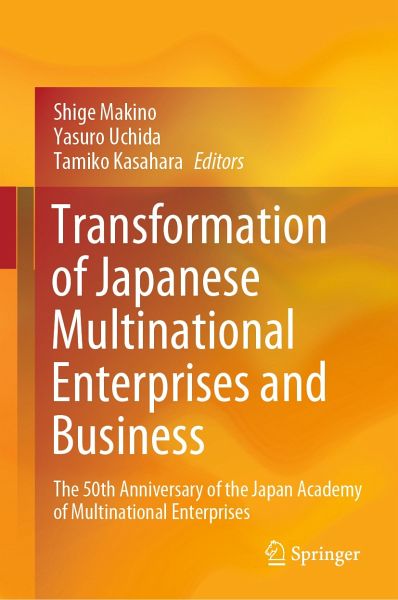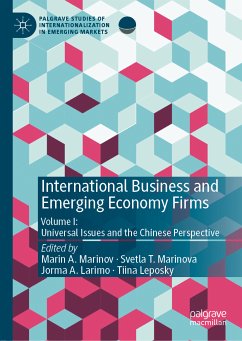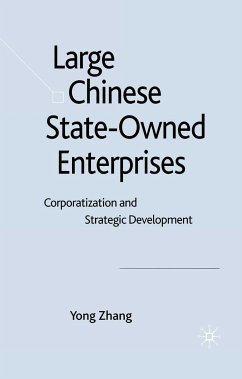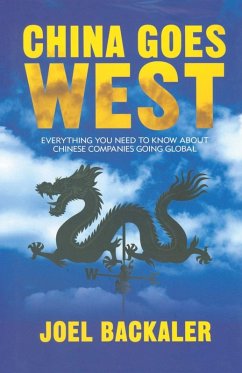
Transformation of Japanese Multinational Enterprises and Business (eBook, PDF)
The 50th Anniversary of the Japan Academy of Multinational Enterprises
Redaktion: Makino, Shige; Kasahara, Tamiko; Uchida, Yasuro
Versandkostenfrei!
Sofort per Download lieferbar
128,95 €
inkl. MwSt.
Weitere Ausgaben:

PAYBACK Punkte
64 °P sammeln!
The purpose of this book is to highlight how current successful Japanese multinational enterprises (MNEs) and companies have changed their business or business models in the past three decades. Japanese MNEs received a lot of attention from academia and industry during the 1980s and the early 1990s, and their factors for success have been compared with those of Western MNEs. Unfortunately, following the collapse of the "bubble economy" in the early 1990s, international business researchers and practitioners' attention has turned away from Japan and its MNEs to emerging markets, notably the rap...
The purpose of this book is to highlight how current successful Japanese multinational enterprises (MNEs) and companies have changed their business or business models in the past three decades. Japanese MNEs received a lot of attention from academia and industry during the 1980s and the early 1990s, and their factors for success have been compared with those of Western MNEs. Unfortunately, following the collapse of the "bubble economy" in the early 1990s, international business researchers and practitioners' attention has turned away from Japan and its MNEs to emerging markets, notably the rapidly growing China.
Japanese MNEs have faced the mature domestic economy and also have had to overcome many new challenges in the twenty-first century, such as rapid aging, depopulation, and response to new technologies. Japanese MNEs and companies today are being forced to respond to new business environments never seen in the past. The prerequisites for business activities have significantly changed from those of former Japanese companies and their management practices. Even in such a difficult situation, however, many Japanese MNEs and emerging companies have achieved steady growth and have succeeded by changing their business models.
This book provides the reader with new directions for research and lessons by analyzing the challenges of Japanese multinational enterprises and emerging companies. The redirection of attention is expected to have a positive impact on the field of international business study and practice.
Japanese MNEs have faced the mature domestic economy and also have had to overcome many new challenges in the twenty-first century, such as rapid aging, depopulation, and response to new technologies. Japanese MNEs and companies today are being forced to respond to new business environments never seen in the past. The prerequisites for business activities have significantly changed from those of former Japanese companies and their management practices. Even in such a difficult situation, however, many Japanese MNEs and emerging companies have achieved steady growth and have succeeded by changing their business models.
This book provides the reader with new directions for research and lessons by analyzing the challenges of Japanese multinational enterprises and emerging companies. The redirection of attention is expected to have a positive impact on the field of international business study and practice.
Dieser Download kann aus rechtlichen Gründen nur mit Rechnungsadresse in A, B, BG, CY, CZ, D, DK, EW, E, FIN, F, GR, HR, H, IRL, I, LT, L, LR, M, NL, PL, P, R, S, SLO, SK ausgeliefert werden.












